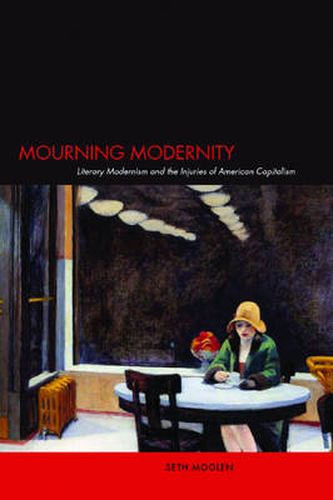Readings Newsletter
Become a Readings Member to make your shopping experience even easier.
Sign in or sign up for free!
You’re not far away from qualifying for FREE standard shipping within Australia
You’ve qualified for FREE standard shipping within Australia
The cart is loading…






In Mourning Modernity, Seth Moglen argues that American literary modernism is, at its heart, an effort to mourn for the injuries inflicted by modern capitalism. He demonstrates that the most celebrated literary movement of the 20th century is structured by a deep conflict between political hope and despair-between the fear that alienation and exploitation were irresistible facts of life and the yearning for a more just and liberated society. He traces this conflict in the works of a dozen novelists and poets - ranging from Eliot, Hemingway, and Faulkner to Hurston, Hughes, and Tillie Olsen. Taking John Dos Passos’ neglected U.S.A. trilogy as a central case study, he demonstrates how the struggle between reparative social mourning and melancholic despair shaped the literary strategies of a major modernist writer and the political fate of the American Left. Mourning Modernity offers a bold new map of the modernist tradition, as well as an important contribution to the cultural history of American radicalism and to contemporary theoretical debates about mourning and trauma.
$9.00 standard shipping within Australia
FREE standard shipping within Australia for orders over $100.00
Express & International shipping calculated at checkout
In Mourning Modernity, Seth Moglen argues that American literary modernism is, at its heart, an effort to mourn for the injuries inflicted by modern capitalism. He demonstrates that the most celebrated literary movement of the 20th century is structured by a deep conflict between political hope and despair-between the fear that alienation and exploitation were irresistible facts of life and the yearning for a more just and liberated society. He traces this conflict in the works of a dozen novelists and poets - ranging from Eliot, Hemingway, and Faulkner to Hurston, Hughes, and Tillie Olsen. Taking John Dos Passos’ neglected U.S.A. trilogy as a central case study, he demonstrates how the struggle between reparative social mourning and melancholic despair shaped the literary strategies of a major modernist writer and the political fate of the American Left. Mourning Modernity offers a bold new map of the modernist tradition, as well as an important contribution to the cultural history of American radicalism and to contemporary theoretical debates about mourning and trauma.